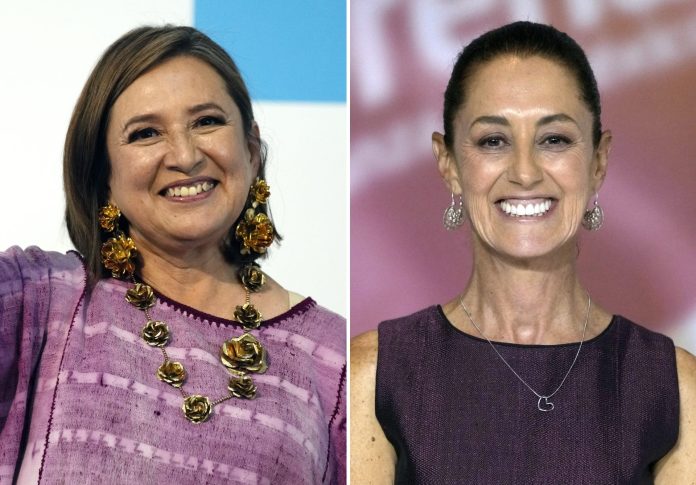
|
Only have a minute? Listen instead
Getting your Trinity Audio player ready...
|
Americans like to think of ourselves as one of the world’s most progressive, forward-thinking countries. We often hold ourselves out as examples for other people to follow.
And yet, Mexico, where the culture of machismo is as well known as sombreros and tortillas, is on the cusp of electing its first woman president, even as voters in this country could return an unabashed misogynist to the White House, ousting the administration that brought us our nation’s first female vice president.
In fact, ours is one of the few developed nations that has yet to have a female head of state. Even countries that are known for their caste systems and suppression of women, already have elected women to their highest political positions, such as Indira Gandhi in India and Benazir Bhutto in Pakistan.
The two top presidential candidates in Mexico’s June 2 elections are Claudia Sheinbaum, a leftist populist backed by current President Andres Manuel Lopez Obrador and his Morena party, and former senator Xochitl Galvez of the Fuerza y Corazon por Mexico Party. Galvez, a critic of Lopez Obrador, is largely a fiscal conservative and social libertarian, and currently receives about 36% support in public opinion polls to Sheinbaum’s 59%.
Meanwhile, former U.S. president and current candidate Donald Trump is polling higher than incumbent Joe Biden. The Republican Trump has admitted to groping and other treatment of women that many people consider abusive, saying that since he’s rich and famous women let him do anything he wants.
To be sure, women have run for president here, most recently Republican Nikki Haley this year. Libertarian Jo Jorgensen made it onto the general election ballot in 2020, as did Democrat Hilary Clinton in 2016, but governance from the Oval Office has, as they say, lacked a woman’s touch.
Certainly, no candidate should be elected because of gender and some candidates haven’t been as strong or inspired as much confidence as their male counterparts, but some have had stronger resumes and proven records of performance. Haley, for example, was a strong administrator as governor of South Carolina and diplomat as U.S. ambassador to the United Nations; Clinton was U.S. secretary of state and a senator. Any argument, which is being heard more as Trump’s candidacy gains strength, that women can’t do the job is inaccurate.
In fact, some of the most significant heads of state in world history have been women, from Bhutto and Gandhi to Margaret Thatcher in Great Britain and Golda Meir in Israel.
Fortunately, women continue to make strides at the state and local level. The Rio Grande Valley, for example, elected its first woman to Congress in 2022 and could return her to Washington after the November election. Brownsville elected its first mayor, Blanca Vela, in 1999. Women are well represented in local school boards, city and county commissions and other elected positions.
As more women build their political resumes, voters who consider qualifications over gender and other less-important factors could enable them to achieve higher positions. For the time being, however, we must wait a bit longer as more nations continue to pass us by.



